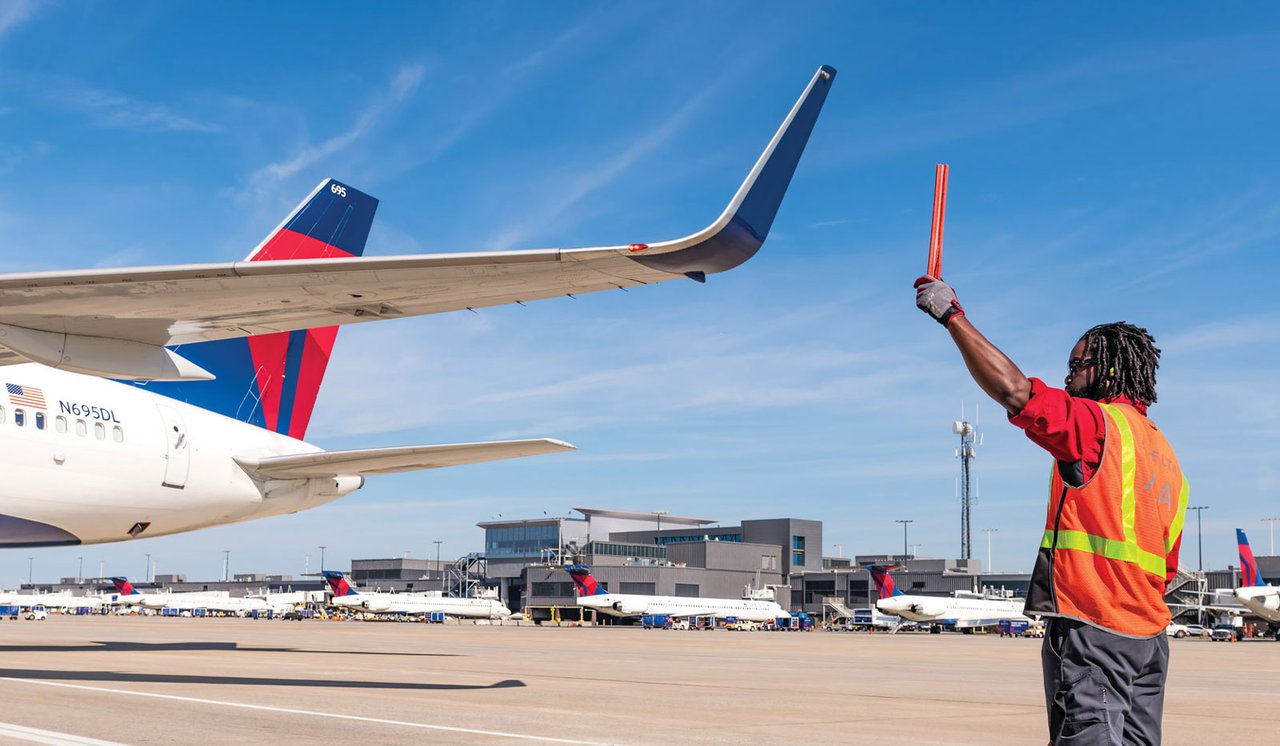

Delta is committed to providing safe and clean transport for customers and a safe workplace for employees.
At Delta, we realize the opportunity to leverage our brand’s trust to drive good vendor practices, touching every aspect of our business.
Delta’s mission to connect the world includes our commitment to being a strong partner to the communities where our employees live, work and serve
Delta has remained steadfast in our commitment to address climate change
Appendix
Our people are our strongest competitive advantage, and the high-quality service they provide sets us apart.
Delta has implemented a robust governance framework over ESG matters at the board and management levels.
Travel Can Change the World. For Good.
SAFETY
03
Employee Safety



Our commitment to safety is also demonstrated by our consistent reinforcement to frontline employees that they are empowered to slow down or stop any operation if they feel it is necessary to do so to maintain a safe work environment for our employees and a safe travel experience for our customers.
We operate several cross-divisional and division-specific employee safety programs that help to achieve our safety objectives, from preventing serious injuries to proactively approaching and encouraging safety dialogue across the company.
In 2021, Delta hired a record number of new full-time employees, approximately 11,000, to support the rising demand for travel following the first year of the pandemic. To successfully integrate this significant influx of new employees, investments were made to adapt and improve our many safety programs, leveraging the maturity of our risk-based SMS to account for a changing workforce and processes shaped by the pandemic.
Safety Programs
Delta provides a suite of safety trainings that include compliance requirements as well as tailored information relevant to an employee’s role, several of which were enhanced in 2021:

Just Culture—one of our long-established safety initiatives—has remained at the forefront to emphasize its importance for new employees within Delta. Just Culture is a mindset that focuses on learning from good faith mistakes rather than punishment or blaming. Just Culture uses collaboration, observations and conversations, such as peer-to-peer or manager-to-employee, to investigate safety incidents and to prevent them in the future, teaching by showing rather than by telling.
The Ground Safety Advocate (GSA) program was launched, which brings to life the Just Culture concept, by assisting new employees in practicing their peer-to-peer communication skills about safety concerns in order to promote best safety practices.

L365 Leading Safety—a unified, cross-divisional learning program for safety leaders—was launched as an opportunity to enhance leadership skills and hear advice and lessons learned from other leaders across the company.

A back to-basics course in Occupational Safety and Health Administration (OSHA) requirements and injury case management was introduced in 2021 to better position frontline leadership personnel to conduct more accurate, timely and complete injury investigations.

To supplement training and embed a culture of safety, the importance of safety is also communicated through weekly videos, internal posts, town halls, daily interactions with leaders and within workspaces.
To evaluate the implementation and success of these initiatives and programs, quality assurance audits and employee interviews are performed at domestic and international airports. Audits and interviews focus on areas where incidents tend to occur, such as Ground Operations, Cargo, De-Icing and Fueling. The audit findings are shared with leaders to proactively identify opportunity areas and best practices.
2021 Safety
at a Glance
3.83*
Total Recordable
Injury Rate
3.46**
Days Away, Restricted or Transferred Rate
0
Fatalities
*TRIR, the number of recordable incidents per 100 workers in our airline operation over one year, excluding work-related COVID-19 cases, declined over the 2019 rate (4.07) but increased over the 2020 rate (2.19) due to the effects of the COVID-19 pandemic on 2020 flight volumes.
**DART, the number of recordable incidents with lost time or restrictions per 100 workers in our airline operation over one year, excluding work-related COVID-19 cases, increased from the 2020 rate (1.83) and the 2019 rate (2.96).









